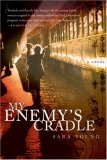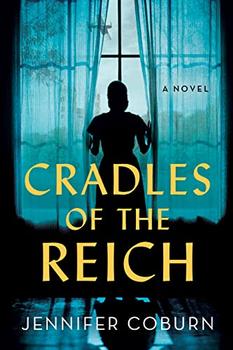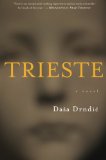Summary | Excerpt | Reviews | Beyond the book | Read-Alikes | Genres & Themes | Author Bio

Sara Young tackles both the common
and the uncommon in her first adult novel, a love
story set against the backdrop of German occupied
Holland during World War II. Fiction readers know
that the Second World War is a subject often plumbed
by novelists, as is the topic of couples forming
romantic bonds and enduring separation and danger
during wartime. These elements in themselves may be
enough to prick the interest of readers who crave a
wartime romance, but Young's tale has another
element likely to set it apart from the many choices
in this genre.
A Nazi program called "Lebensborn" designed to
replenish the German army with the babies of girls
pregnant by German soldiers is so central to this
story that it almost acts as one of the main
characters. What makes this historical element
particularly interesting, besides the lure of the
bizarre, is that few novelists have explored this
facet of Nazi history. Young's book chronicles an
element of World War II eerily opposite to the bold
evil of the deportations and concentration camps of
the Holocaust: a Nazi system of housing pregnant
women in lavish mansions, feeding and protecting
them while they wait to give birth. However, once
the children are born, the Nazi machine reveals
itself, separating mother from child and accepting
only "perfect" newborns. As a result, My Enemy's
Cradle has two potential audiences: fans of
World War II romance and fans of unique historical
fiction.
The novel is the story of a young woman,
half-Dutch and half-Jewish, living in Holland with
her aunt, uncle and cousin – a young woman
struggling with her identity; with her mother's
death and father's perceived abandonment; with her
feelings of adoration and jealousy of her beautiful
cousin, Annike; and with her unrequited love for
Isaac. Cyrla's love for Isaac and her sisterly
relationship with more experienced Annike also lead
her to explore sexual love; the physical expression
of romantic love and its stages, from curiosity to
maturity, are also woven throughout the larger
story.
As the novel blends well-worn themes with the
unexplored, the book's characters and writing
similarly vacillate between respectable and very
good. Young shines when describing moments of loss
and fear – the absence of a person, sexual
violation, the terror of approaching childbirth
under Nazi guard. At times, one wishes that the
secondary characters could be given more attention,
allowing the reader to explore their motivations and
histories. Perhaps Young intentionally limited the
reader's knowledge, not only for the sake of
maintaining a swiftly moving plot, but also to put
them in the same position as her main character. For
Cyrla must make choices based on what she thinks she
knows, taking one step at a time (as she often
reminds herself in the story). As the tale unfolds
and relationships are both formed and lost, Cyrla
slowly discovers the influence that appearance
versus reality and truth versus assumption have upon
her survival – and her happiness.
My Enemy's Cradle is a good read, though
there are plot elements and character interactions
that may strike some as unrealistic. However, these
portions do gain credibility by virtue of the
unnatural setting and extreme time in which they
take place. Risky decisions, compromise and
relationships – both forbidden and convenient –
during the German occupation are part of Cyrla's
story, as they are part of World War II history.
![]() This review was originally published in The BookBrowse Review in January 2008, and has been updated for the
October 2008 edition.
Click here to go to this issue.
This review was originally published in The BookBrowse Review in January 2008, and has been updated for the
October 2008 edition.
Click here to go to this issue.

If you liked My Enemy's Cradle, try these:

by Jennifer Coburn
Published 2023
Three women, a nation seduced by a madman, and the Nazi breeding program to create a so-called master race.

by Dasa Drndic
Published 2015
"A masterpiece" (A.N. Wilson), this many-layered novel of WWII combines fiction with a Sebaldian collage of facts to explore the fate of Italian Jews under Nazi occupation, through the intimate story of a mother's search for her son
Your guide toexceptional books
BookBrowse seeks out and recommends the best in contemporary fiction and nonfiction—books that not only engage and entertain but also deepen our understanding of ourselves and the world around us.